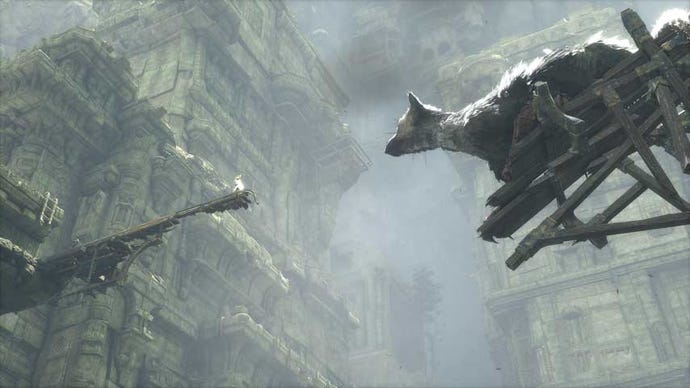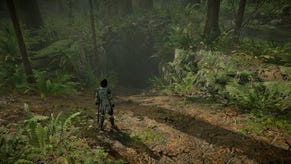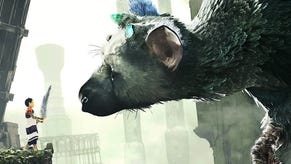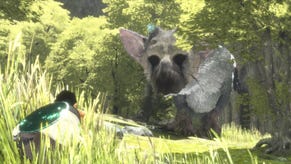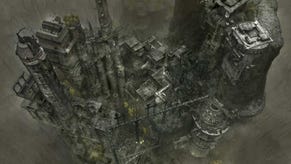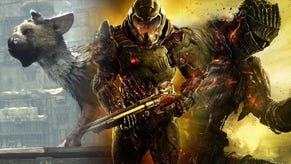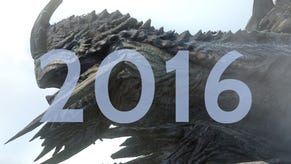The Last Guardian review: a stubborn and fascinating old-school adventure
Was it worth the wait?
"The Last Guardian is an inspiring and exciting adventure, nothing less than fascinating from start to finish. But it's also frustrating and bloody-minded."
When you've waited almost eight years for a game you've probably already swung through all the emotions possible. From expectation and excitement to doubt and despair, and back again. Sitting in front of The Last Guardian feels a bit weird, and I felt a little nonchalant about it, much the same way Alex felt about Final Fantasy 15 upon first getting his hands on that, I guess.
I started it in a curious state of whatever. I didn't care if it's any good or not, I just want to see what the hell a game in development since 2007 actually looks like, now, in December 2016.
Here's the genuine surprise; it looks and feels great. The Last Guardian is an inspiring and exciting adventure, nothing less than fascinating from start to finish. But it's also frustrating and bloody-minded.
The first two thirds of The Last Guardian is a sweeping, charming, epic adventure between boy and pet. The two bond slowly as they explore and escape, spiralling up and around a crumbling castle, taking in leaps of faith, heart-in-the-mouth jumps, stunning views and drama in which I let out genuine gasps of delight and worry. It's some of the best story-telling through activity you'll find on the PS4, and that nuance has probably been built up during and benefited from its protracted development.
It's deceptively subtle. Before you begin to feel a routine is setting in, another small detail or element is added. You can pet Trico and feel its heartbeat pulse through the controller, which seems neat, but it's actually for good reason. Later, influence over your companion becomes more direct, with twists to the gameplay mirroring the labyrinthine, lonely world and the changes you'll feel as you push forward. Game director Fumito Ueda is a storyteller here, teasing tiny new details with glimpses in the corner of the screen or distant sounds. In a year where taking in-game selfies of your guffawing character is on trend, something this gentle feels like a revolution.
"In a year where taking in-game selfies of your guffawing character is on trend, something this gentle feels like a revolution."
It's not a revolution though. It's the same game that Ico was in 2001. It's a brave and confident design decision. It's the adventure of Uncharted but with the gunplay, set-pieces and banter thrown out. It's old-school Tomb Raider before the crafting and skill trees. Fifteen years later and this stripped-back approach still feels fresh.
Your charming companion, Trico, is undoubtedly the star of the game. It stretches when left alone, sniffs at the air, it's feathers ripple in the wind, it pines for you with a lonely mewling. It's calm and gentle when you smooth down its neck, but powerful and destructive when attacked or frightened. It's eyes change from a penetrating glare to innocent wonder depending on your situation, and as much as you save its life it returns the favour, feeling like a true co-op friend.
But something happens during the final third of the game that begins to niggle, then shatter the illusion of cooperation. Trico begins to get stubborn, and not intentionally. Up to this point Trico does what you ask of it, leaping from perch to rock, attacking guards for you, glancing in a certain direction to give you clues as to how to pass the next problem. But there are a handful of occasions where you'll become stuck - you can see the solution - but Trico just won't do what you want it to.
There's a section where you fall into a cave, and you're expecting Trico to lower its tail so you can climb out. You know this because you've climbed Trico's tail a few times already. You call it. You tell it to jump in the hope of cracking the ceiling and making the hole a little wider. You jog on the spot to get its attention. It stares back at you, blank. It's only when you stand in an exact spot that Trico is triggered to do the right thing and you continue on your adventure. But it will take you 20 minutes or more to find that exact spot. This same problem happens again with a giant cog, and then again with a cart, and then multiple times where water is concerned.
These problems feel compounded by the camera and controls, which are pure PS2 era. It's another old-school element that I suspect some might enjoy, while others will find infuriating. The truth is the action in The Last Guardian is never fast enough or dramatic enough to get irate at the controls and camera, but they are slower than we're used to in 2016. You will wonder why pressing a button at a certain point at a certain time does not do what it's meant to do, and you'll never be clear as to why it just didn't work. The next time you do it, it will more than likely work. Is that acceptable to you? Certainly, there are worst crimes when we've played games this generation that have been all but broken and bugged on release.
"The story and sense of achievement will push many of us willingly to the end, whether you're new to Ueda's craft or you've been patiently waiting for more ever since finishing Ico."
The Last Guardian is not a hard game, despite it being a puzzle adventure. You can always see where you're meant to be going, and most the time, how you're supposed to get there. But when you get to these problems, this kind of impasse slows you down and frustrates. It's not the challenge of the game that's stopping you progressing, but Trico's unreliable intelligence. This, coupled with an awkward camera in tight spots (it's not as bad as feared), and an old-school approach to controls, will make you turn off the game in a huff. It's a shame that all of this interrupts the flow of an otherwise tightly designed game.
So your enjoyment of The Last Guardian will depend on how forgiving you can be. It's stubborn and awkward in a handful of places, but incredible, liberating and awesome in many, many others. I suspect that the story and sense of achievement will push many of us willingly to the end, whether you're new to Ueda's craft, or you've been patiently waiting for more ever since finishing Ico and Shadow of the Colossus all those years ago.
